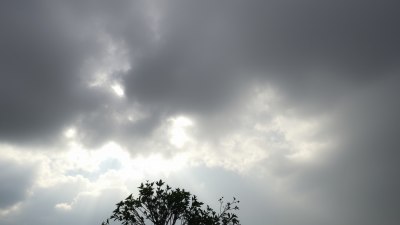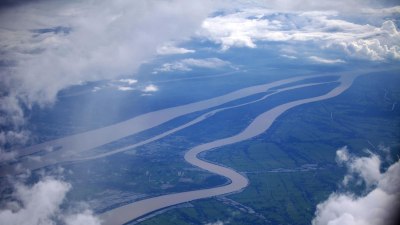How You End Up Buying Camping Gear During Heatwaves You’ll Never Use
Explore the psychology behind impulsive camping gear purchases during heatwaves.

The summer heat can bring with it an insatiable urge to escape the confines of your home or city and immerse yourself in the great outdoors. However, as temperatures soar, many individuals find themselves making impulsive decisions regarding camping gear they may never use. The psychology behind these purchases can be complex, influenced by a mixture of social pressures, personal aspirations, and a desire for adventure. In this article, we will explore how the sweltering summer heat can spur impulsive camping gear buying habits, why we fall into this trap, and how to make more informed choices.
The Allure of Adventure
The idea of buying camping gear can be incredibly appealing. Images of serene lakes, tranquil forests, and majestic mountains fill our minds with a sense of wonder and adventure. The desire to experience nature often clouds our judgment during extreme heat, making us yearn for what appears to be a liberating escape. However, in the moment, many of us fail to recognize that this motivation can stem from both a genuine love for the outdoors and the influence of social media.
The Social Media Influence
In today’s digital age, social media platforms are flooded with images of idealistic camping trips. Influencers often showcase beautiful setups, perfect gear, and breathtaking views, which can lead to a phenomenon known as 'FOMO' or the fear of missing out. During the hottest months, when people are looking for a way to cool off or escape city life, this fear can heighten. Even if you're not someone who regularly camps, seeing others enthusiastic about their outdoor adventures can trigger a rapid urge to purchase the latest camping gadgets and gear.
Impulse Buying Mechanics
Impulse buying is a psychological behavior characterized by a sudden, unplanned decision to purchase something. When the weather becomes oppressively hot, it’s natural to seek relief or adventure elsewhere. Camp setup videos, gear reviews, and attractive discounted prices can make it feel like it’s the perfect time to buy, despite the reality that future trips may not happen. This results in accumulating products that may end up gathering dust in cupboards or garages.
Psychological Triggers
Several psychological triggers contribute to this pattern of indulgent spending. First, the advent of warmer weather and the way it affects our moods play a crucial role. Warm temperatures can elate our spirits, instilling in us a sense of optimism that prompts spontaneous decisions. Next, the marketing strategies employed by outdoor gear companies often induce a sense of urgency. Clearance sales, limited-time offers, and other promotional tactics are designed to encourage immediate purchases.
Evaluating Your Needs
Before caving in to your impulses, it’s essential to evaluate your genuine needs. Reflect on the frequency of your past camping experiences and consider if you truly require new gear or if you have perfectly functional items at home. Creating a list of essentials can help steer you away from unnecessary purchases during heatwaves. Focusing on practicality over impulse often leads to more satisfying outcomes.
Planning Ahead
One effective approach to mitigate impulsive purchasing is by planning future trips before making any camping gear investments. If you have a camping trip scheduled, take the time to list what you need for that specific outing and prepare your packing list accordingly. Consider discussing your plans with friends, as this can increase motivation to follow through, reducing the likelihood of regrettable purchases.
Renting vs. Buying
Another viable option is to explore outdoor gear rental services available in many cities. Renting allows you the opportunity to try out various types of equipment without the commitment of a purchase. Especially when venturing into new activities or domains of camping, this option can lead to lesser regrets and more informed gear purchases down the road.
The Role of Friends and Family
Friends and family can significantly impact your camping gear decisions. If they have the gear you’re considering, see if you can borrow or share instead of buying new items. Additionally, friends who share similar interests can help keep you accountable and minimize impulsive decisions. Building a supportive network may enhance your experience and provide mutual benefits for you and your camping companions.
Environmental Considerations
The environmental implications of our purchasing choices cannot be overstated. Camping equipment can carry a substantial carbon footprint when produced, transported, and disposed of. Opting to buy less frequently and utilizing what you already have not only lightens your economic burden but also reduces your environmental impact. Embracing minimalism and sustainable practices will benefit both you and the environment in the long term.
Embracing Experiences Over Things
Ultimately, the best memories often come from shared experiences rather than accumulated possessions. When considering potential camping gear to purchase, take a moment to reflect on how the items will contribute to your experiences outdoors. Prioritizing worthwhile experiences over materialistic pursuits fosters a healthier mindset toward spending and enriches your life.
In conclusion, while the allure of camping gear can be powerful during heatwaves, keeping in mind the psychological triggers and influences can help you avoid unnecessary purchases. With effective strategies, such as planning ahead, evaluating needs, renting equipment, and fostering connections with friends and family, you can balance your desire for adventure with sound decision-making. Be prudent in your spending, and aim for experiences that provide long-lasting memories. Embrace the wonderful world of the outdoors without the weight of superfluous gear.











